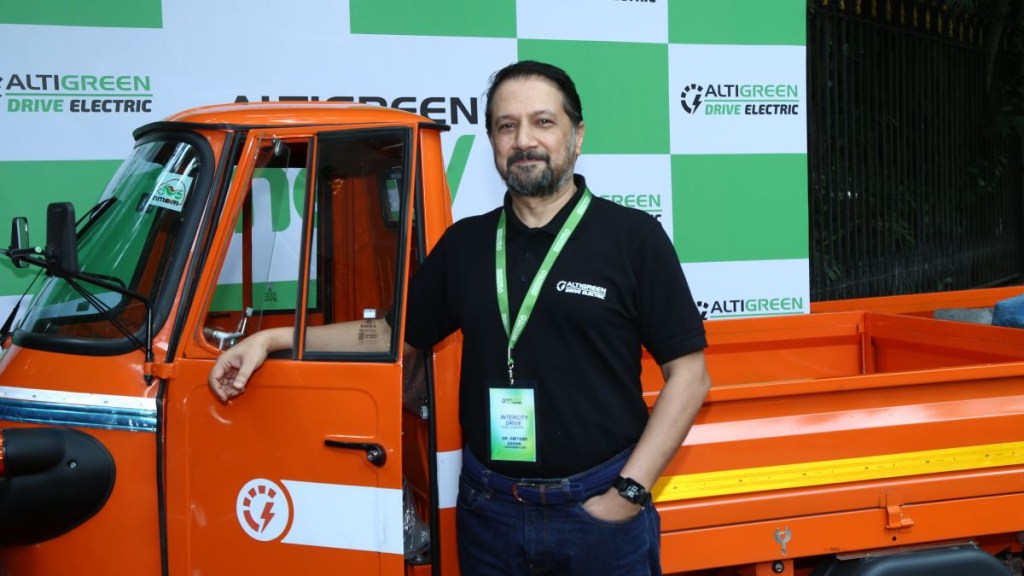Bengaluru-based electric vehicle manufacturer, Altigreen, is on a spree to set up its dealerships across cities in its bid to transition towards a B2C approach after having catered the B2B demands of logistics firms. The company recently inaugurated its first dealership in Delhi, which was its third in the span of 15 days.
Explaining the company’s transition from catering to the B2B demand of logistics firms towards a direct-to-consumer approach, Amitabh Saran, Founder & CEO, Altigreen said, “We have been selling vehicles since January 2021. We are in 15 cities. But all of those sales happened from Bangalore to logistic companies. We realised upfront that B2B is only 14% of the market.”
“Last-mile transportation is a very big market. We realised we have to enter the B2C market, direct-to-customers, which means we need a point of presence. That’s why we are planning to have 40 dealerships by the end of this financial year. We are in 15 cities in India today. We are setting up dealerships. We all have our distribution in metros, tier 1 and tier 2 cities as the focus isn’t only on large cities.”, he added.
Altigreen neEV electric cargo loader rivals the likes of Mahindra Alfa Plus, Piaggio Ape Xtra LDX, and Euler Motors Hi Load.
While there has been robust growth in the number of electric-powered vehicles on Indian roads, most of the home-grown manufacturers, however, depend on foreign technologies and imports for the production of EVs. This means that the prices of the products go up, thereby posing a roadblock in EV adoption given that India is a price-sensitive market.
Altigreen claims that it maintains 100 percent localisation of its products and has been actively making investments in its R&D. On being asked about the investment that has gone into the company’s R&D, Saran says, “At this point, it is close to about $10 million. So from a startup’s perspective, it is huge. In order to disrupt the market, innovation is key.”
The EV transition, despite the challenges it faces in India, has been robust and the government has been addressing the challenges timely. The PLI and FAME-II schemes have provided monumental support to help establish the manufacturers that are promoting, as well as catering to the demands of electric vehicles in the country.
Saran, when asked about what the potential impacts the industry will face after the subsidies are lifted, said, “Of course, the prices will take a hit when the subsidies are lifted but talking about commercial vehicles alone, let’s say, the customer pays a downpayment of Rs 50,000, which will remain the same in any case,”
“However, the savings post-purchase are substantial, in terms of maintenance costs and cost per km as compared to ICE vehicles. These factors will eventually make EVs affordable. Also, investments and R&D and increased localisation will help in sustaining the EV manufacturers post the subsidies”, Saran added.


















